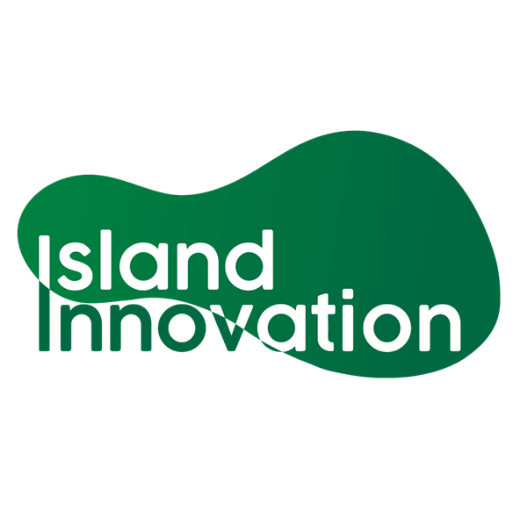Remote workers present a rapidly developing economic opportunity for island and rural communities either in the form of diverse visitor revenue streams or welcoming the diaspora home. Below we list the decision-making process of remote workers when choosing their next home and how destinations can respond to ensure they attract this particular demographic.
Digital nomads are a particular category of remote worker and are not fixed to any particular location. There are a number of different types of remote worker including:
- Those that work from home or partially from the office.
- Workers who split their time between home and other destinations.
- Digital nomads who live where they work and change destination.
- Expats who work remotely but stay in one location permanently.
- Residents who return home and work remotely (for a foreign or local company).
There are several converging trends fuelling the growth of remote work. It’s important to note that there is mounting evidence to show that there are productivity gains to be made. Research by Stanford University has shown that remote workers are 13% more productive. Another study by Owl Labs revealed that remote workers themselves report 79% increased productivity without the distractions of the office.
For the purpose of this article, we will refer to digital nomads and remote workers interchangeably and have summarised the key reflections and considerations. However, we suggest getting in touch if you want a detailed strategy for your island, as whilst there are commonalities, you will want to refine your approach to attract the right audience. When we asked our webinar audience about their associations with the term digital nomad you can see the response was incredibly varied:
Some destination considerations for remote workers
COVID-19
Currently, at the forefront of everyone’s mind! From the perspective of a potential long-term visitor they will want to know:
- Levels of infection and case numbers
- Protocols for new arrivals including testing and quarantine requirements
- Track and trace systems in place
- Healthcare provisions available
It might be that you actively promote your low case numbers to attract visitors and enforce a strict quarantine to protect your residents. Some countries, such as Dubai, are offering free vaccinations as part of their program in a bid to attract more people.
Personal security
Perhaps potential remote workers or digital nomads will hold preconceived ideas about the security of your island. If there has been negative press or a misconception it is important to tackle the issue in your literature to reassure visitors of their personal safety.
Disasters
This isn’t a concern for all destinations, but it is important to highlight any protection your island offers against disasters. It may be that your island is off the hurricane belt, such as Curaçao. Or perhaps you’ve developed early detection systems or flooding protection. Potential arrivals will look for this information. Being transparent can help position you as a proactive destination and can even present an opportunity to showcase your advantages.
Internet connectivity
Without good internet access, you can’t be a top destination, so you have to guarantee both speed and reliability. It’s important to make this information accessible and promote any statistics to support your claims. Also, if you have any developments, either in terms of 5G or wider availability, it can be beneficial to share this news within digital nomad communities.
Work permits and visa requirements
Remote workers will want to know:
- How long they can stay for
- Flexibility within the visa options
- Cost of permits of visas
- Application timeframes
You may gather traction as a destination by offering low entry price points for your working visa or digital nomad scheme. This might help you create a community of remote workers if you are new to this approach.
Cost will be a consideration for nomads, but they will weigh it against the provisions for work and the security of the destination. This means that you don’t necessarily have to offer the lowest price point. Instead, take the time to compare your destination to others and review how much you need in terms of revenue to make your project viable.
It’s essential for islands to consider easy information access and a straightforward application process. You might need to offer the application process in multiple languages for example or offer a live chat facility on your website to answer queries in real-time.
Visas for nomads are developing rapidly and there will be increased competition amongst destinations. Estonia, for example, has led many initiatives to welcome digital nomads, including the first official digital nomad visa. Madeira offers the opportunity to apply for self-employment visas. The same is true for all of Portugal, but this increases the opportunity of Madeira as an island destination.
Taxes
Workers will be interested in understanding which visa and work permits are available, but they will also want to know about tax on their revenue! As with visa costs, you may use your low or advantageous tax base as a way to attract new people to your island.
Taxes potentially have a bigger impact on destination choice compared to visa cost, especially if you are asking for a minimum revenue requirement. It is worth reviewing how your taxes compare to other popular destinations and also factoring in the difference in cost of living. High taxes and high visa costs combined with a high cost of living may be off-putting for certain demographics. Barbados, for example, allows remote workers to stay for 12 months but they do not become tax residents. Tax declarations and payment should be made in accordance with their nationality and business location.
Accommodation
All remote workers need somewhere to live. There are a number of options available including:
- Hotels
- Long term leases
- Remote work villages
- Airbnb
You may decide to offer accommodation choices on your website to help potential candidates understand the choices available to them. For example, the Autonomous Region of Madeira has several partners and presents a range of housing options. You need to ensure you have the housing infrastructure available to be able to accommodate an increase in remote workers. Again, it’s important to understand the type of worker you are hoping to attract as their accommodation needs will vary.
Community and work facilities
Remote workers might be initially attracted by accessible visa tariffs or beaches, but they will stay and return because of the community and wider supporting facilities.
You might develop nomad villages to help new arrivals feel at home. Or, you may develop a welcome service that helps partners find work or places in school for their children. Your approach to community development could begin before workers arrive! For example, you could create online forums for workers to connect and exchange stories. Creating a directory for nomad key resources or a dedicated communications platform are two approaches that support community development.
Healthcare and insurance requirements
Establish a clear framework for how you plan to manage the healthcare needs of your remote worker community. Health insurance may be obligatory as part of the visa application, or you may enforce a minimum savings threshold to ensure medical bill payment.
Whilst travellers will want to know about your COVID-19 provisions, you must ensure new arrivals are an asset to your economy and don’t add costs to your healthcare system. The key to healthcare and insurance requirements is transparency. Policies must be easily available and obligatory criteria should be tied to your visa or work permit application process.
Mistakes destinations often make
Rosanna Lopes, Digital Nomad Community Organiser, explains in our webinar the common mistakes she sees destinations making:
- Lack of focus on community and ‘reasons to stay’
- Using the same communication approach as they would for traditional tourists
- Not focusing on a clear segment within digital nomads and tailoring your communications
- Trying to promote jobs in local companies where nomads can bring their revenue to the island
You can see Rosanna talk about these mistakes below:
Next steps
If you are interested in developing your visibility as a destination or would like to discuss how to develop a sustainable remote worker program we suggest getting in touch with our team.




